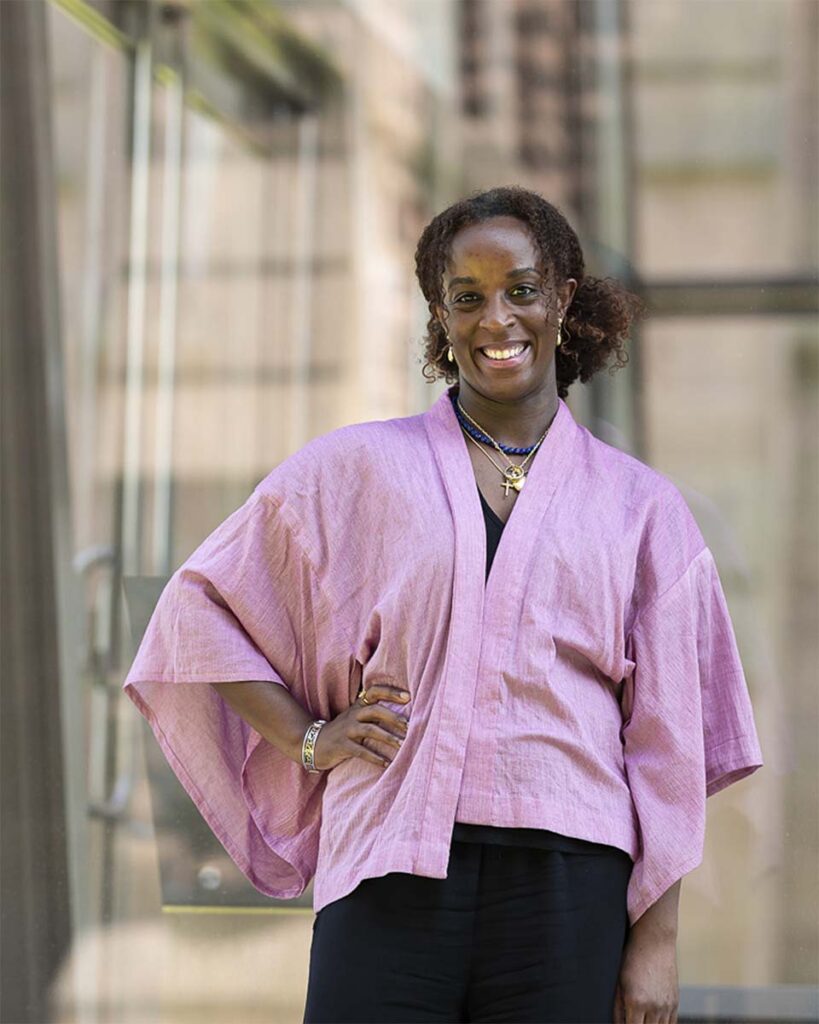
Felicia Appenteng ’07
“Thinking across disciplines makes the most sense of the things that are most complicated,” says Felicia Appenteng. In her first days of classes—taking Cosmic Evolution/Dissolution?— she observed her professor masterfully intertwine humor, music, philosophy, literature, and economics all in context. She recognized: “This is how my brain works.” And so began the deep gut feeling that Wesleyan was and would remain home.
Felicia didn’t have a specific vision for her future but, members of her Wesleyan family suggested, that was because her dream job likely didn’t exist. She’d need to create it. At Wesleyan, she learned to try things and work hard to discover what she liked. She took that lesson into her early career and found that she loved the intersection of programs, products, and operations. Felicia also knew that she wanted to live her purpose through her career, and as she says, “make the world a better place in a small, but meaningful way.”
She has been doing just that, co-creating with organizations and colleagues to improve the world. She began by designing the first ever Africa Center at Instituto de Empresa (IE) University in Madrid, Spain. From there, her work with the International Center for Research on Women, built out the roadmap to transform the organization’s offices in Asia and Africa into independent, sustainable Gender Centers of Excellence. “I have spent my career building internal and external coalitions to achieve progressive goals; in other words, catalyzing empathy into solutions,” Felicia says, “and that’s why I love being in service to Wesleyan. It’s urgently important to take the ideas of young people seriously. What makes Wesleyan special is the way in which we use our values not as a social litmus test, but as a call to action.” Her current work is focused on identifying, analyzing, and galvanizing the leading entrepreneurs of the African Diaspora so that they can help to unlock the most innovative market solutions to the most urgent development challenges of our time.